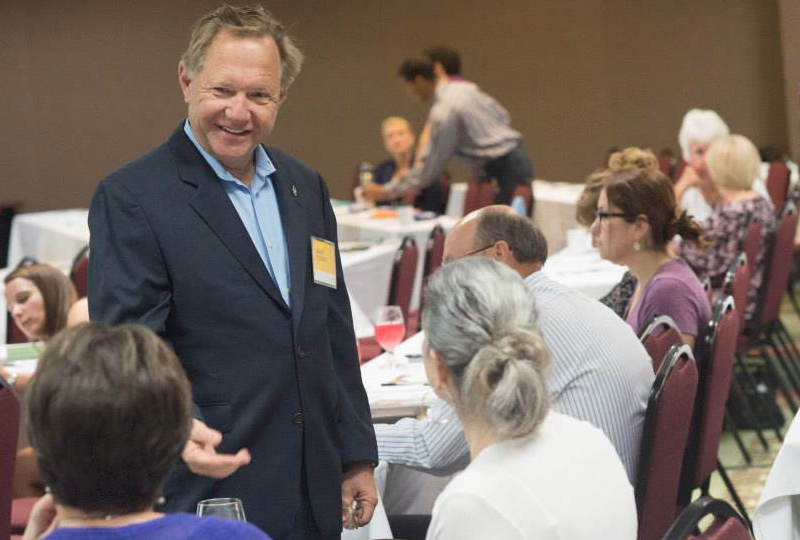How to dig deeper in problem-solving
- June 20, 2016
- / Quint Studer
- / training-development,quint-studer

"Everyone is upset."
"All the employees are feeling left out"
"Everyone is overwhelmed."
“I can't tell you who said it, but I thought you would like to know."
Generalizations in a workplace: We’ve all heard them.
One of the hardest lessons to learn in leadership is to be cautious before responding to generalizations. I’ve never regretted pausing before taking action, but I sure have regretted not pausing before taking action. Why?
Generalizations are full of ambiguity. Everyone feels this way. Who is everyone? Why haven’t they come to the supervisor to voice their own concerns, instead of sending a single person to carry the message?
In my experience, it merely takes a few questions from a supervisor to make a sweeping generalization become smaller or disappear completely. And the person carrying this message to the leader? They may not realize it, but after answering a few questions it becomes evident the carrier is hurting the person whose message they are carrying, as well as hurting the organization as a whole.
For leaders, it’s important when approached with a generalization not to respond to it too quickly. When a leader responds too quickly, they can create an even bigger issue, feeding more worry and energy into a situation than necessary.
Let’s use an example that I experienced earlier in my career.
When I was president of an organization, a vice president came to me and said, “All the employees are upset.” She was speaking for a division made up of 500 employees.
Fortunately, I had learned this skill the hard way at a previous job. I knew to not rush to figure out what to do for all of these 500 “upset” employees. I slowed down and asked a few questions.
“How many employees have you spoken with?” I asked. The number dropped quickly. She had been in one department that morning and it was in a group of fewer than six.
I followed up with another question: “What are they upset about?” She said they have staffing concerns. By asking what the concerns were, I soon learned that it wasn’t permanent staffing issues, we had a specific issue with staffing that morning.
With just two questions we went from large group to a small group and from a permanent problem to a temporary one.
I’m not saying we shouldn’t look into concerns. However, we don’t need to react without a thorough diagnosis. As I’ve discussed in previous columns, it is just as important for leaders to be open to suggestions and constructive criticism. That’s vital in the workplace.
When a generalization comes, it doesn’t mean we refuse to reach out to other areas to see if a similar feeling does exist. Ultimately, by asking questions seeking specifics such as "how many?” “When?” “where?” and “what?”, the issues gain clarity and the solution is often not as complex as it may have seemed at first.
Drilling down on generalizations also is effective with your customers. I have found when a customer has a complaint, there are ways to reduce the generalization.
When I worked in healthcare, sadly, at times we let a patient and their family down. A family member would come to hospital administration and ask to speak to the person in charge. As president, that meant me.
They may say that the whole experience is terrible.
As I explained in my service recovery column, I would take the first step and apologize that we were not meeting their expectations. I would take notes. I would make sure we had a game plan moving forward.
After that, I would see if they were willing for me to ask them some questions. I would ask about their registration process. I would get their opinion on the hospital’s security. I’d inquire about housekeeping, about physicians, about food. What about all of the nursing shifts? The lab? How about imaging?
Very often the person would start saying that many of those aspects were good. They would say, “I really liked them.” When the person left, we still had some fixing to do, but we had progressed from “everything” being terrible.
It helps the organization because it gives a better focus on specifically what to improve. It also helps the customer realize that, though we may not have lived up to all expectations, there were aspects that proved worthy of their business and trust.
So the next time you hear a generalization from your employees, listen. But before you react, before you attack an ambiguous problem or take one person’s word who’s trying speaking for dozens, dig deeper.
Most times, you’ll discover the best way to take action.
 CivicCon launches with a look at good growth in cities
CivicCon launches with a look at good growth in cities
 Building stronger brains one baby, one parent at a time
Building stronger brains one baby, one parent at a time
 SCI debuts commercial on Early Learning City
SCI debuts commercial on Early Learning City
 Entrecon: World class speakers and an opportunity to sharpen skills
Entrecon: World class speakers and an opportunity to sharpen skills
 PYP Quality of Life survey 2017
PYP Quality of Life survey 2017
 EntreCon Pensacola 2016: A look back
EntreCon Pensacola 2016: A look back
 Leadership tip: getting better employee takeaways
Leadership tip: getting better employee takeaways
 Leadership tip: be interested instead of interesting
Leadership tip: be interested instead of interesting
 Leadership tip: delivering difficult messages
Leadership tip: delivering difficult messages
 Brain Bags boost Arc, Early Childhood Court programs
Brain Bags boost Arc, Early Childhood Court programs